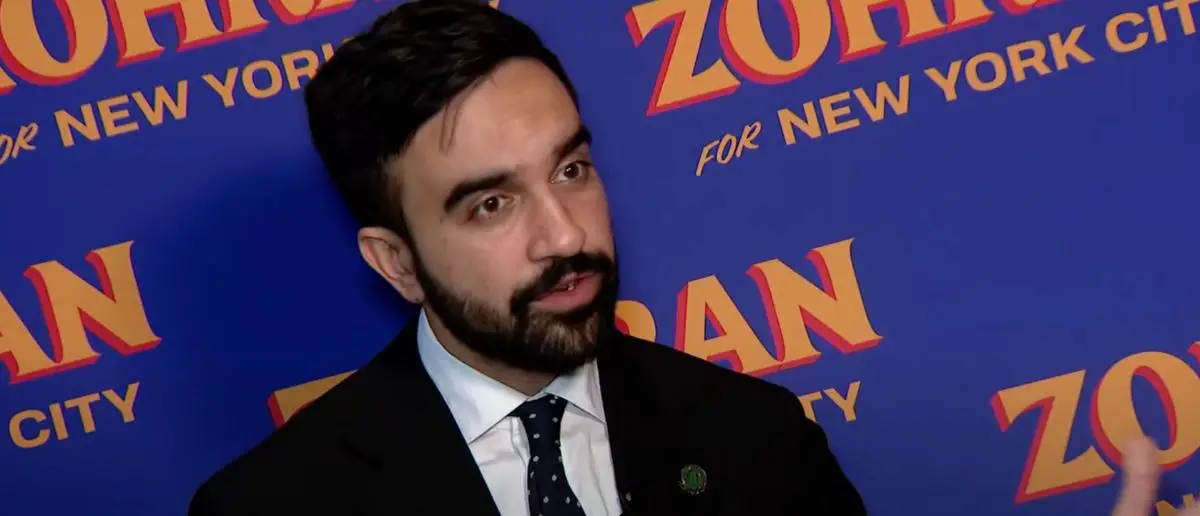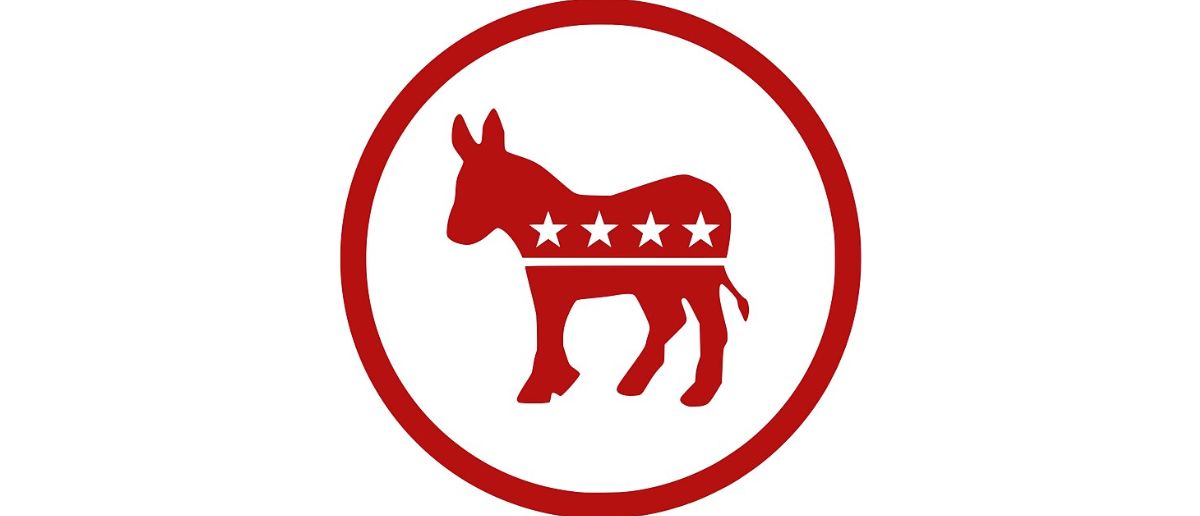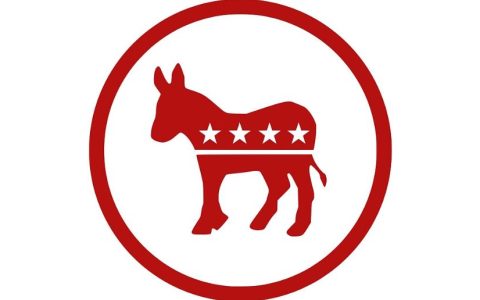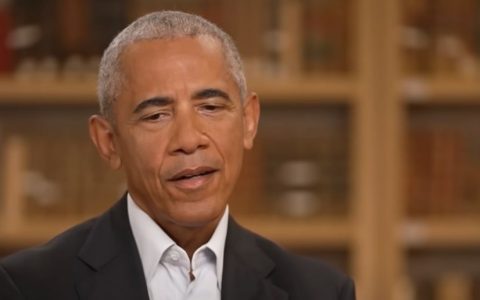
The Democrat Party is hanging on by a thread. One bad move will cement their extinction.
And the Democrat Party will officially be put in the grave depending on the outcome of this one critical race.
The Socialist Surge Threatening the Democrats’ Future
The Democratic Party stands at a crossroads, with its soul hanging in the balance. In New York City, the nation’s largest socialist organization, the Democratic Socialists of America (DSA), is aggressively positioning one of its own, State Rep. Zohran Mamdani, to seize the mayoral throne in the upcoming primary. This isn’t just a local race—it’s a battle for the ideological future of the Democrats. If the party veers toward the extremist path of socialism, it risks alienating the vast majority of Americans who view such ideologies with deep skepticism, if not outright disdain.
Mamdani, a rising star backed by the DSA, is polling at 22% in the June primary, trailing former Gov. Andrew Cuomo’s 45%, according to an April Honan Strategy Group survey. Yet, Mamdani’s campaign has outpaced nearly all moderate contenders in fundraising, amassing over $8 million in private and public funds. The DSA’s endorsement in October propelled his numbers by 13 points since January, signaling a growing appetite among some Democrats for far-left policies. But this momentum could spell disaster for the party’s national prospects.
“I do think that the DSA candidate is absolutely capable of winning,” said Chris Talgo, a research fellow at the Heartland Institute. His recent report revealed that 94% of DSA-endorsed candidates in 2024 triumphed with an average victory margin of 49 points. New York’s mayoral race, Talgo argues, is a “test case” for whether Democrats will embrace centrism or double down on radical leftism. The outcome could reverberate across the country, shaping the party’s trajectory for years.
The stakes couldn’t be higher. “Are they going to go more toward the center, or are they going to go even more toward the left?” Talgo asked. For a party already grappling with internal divisions, the answer could determine whether Democrats remain a viable force or spiral into irrelevance. Americans, polls consistently show, harbor a strong aversion to socialism, associating it with economic stagnation and authoritarianism. A socialist mayor in the nation’s biggest city would be a gamble the party can ill afford.
Mamdani’s platform is a laundry list of radical proposals: a $30 minimum wage, defunding the police, and even arresting Israel’s prime minister for “war crimes” if he sets foot in New York. These ideas resonate with a vocal minority but clash with the sensibilities of most voters, who prioritize practical solutions over ideological crusades. “If Mamdani became mayor, the significance for the future of socialist politics would rise immeasurably, probably in direct inverse proportion to the fortunes of NYC if his policies were implemented,” said Seth Barron, a conservative commentator focused on New York politics.
Barron’s warning is stark: “To have the nation’s biggest city run by an avowed advocate of radical wealth distribution, defunding the police, and the arrest of Israeli citizens for ‘war crimes’ would demonstrate that, at least in blue cities and states, the future of socialism is rosy.” Such a victory would embolden the DSA, potentially paving the way for figures like Rep. Alexandria Ocasio-Cortez to dominate the party’s future. But it would also risk cementing the Democrats’ image as out-of-touch extremists.
The generational divide within the party is palpable. Mamdani, born in Uganda and raised in New York by an “anti-colonialism” scholar, represents a younger, more radical cohort. His vision of “free” programs and aggressive redistribution contrasts sharply with Cuomo, a Queens native who supports Israel, advocates for a stronger police force, and pushes moderate economic fixes like tax relief and affordable housing. At twice Mamdani’s age, Cuomo embodies the establishment—but his scandals and past allegations make him vulnerable.
Mamdani’s fundraising edge, bolstered by the DSA’s voter outreach and grassroots efforts, gives him a fighting chance. The DSA has poured resources into his campaign, aiming to “transcend the rightward shift” among New Yorkers, many of whom swung toward President Donald Trump in 2024. But this strategy ignores a harsh reality: socialism’s appeal is limited. The DSA’s own struggles under Biden’s presidency—declining membership, financial woes, and fewer electoral wins—suggest the movement’s vulnerabilities.
From a peak of 79,000 members in April 2021, the DSA’s ranks fell to 69,155 by December 2024, only recently rebounding by 7,000. Financial troubles forced the group to lay off 12 staffers in 2024 to address a $1.2 million deficit. Internal disputes and accusations of mismanagement have further weakened the organization, with some members criticizing its nonprofit arm as too “conservative.” These cracks could undermine the DSA’s ambitions, even as it pushes Mamdani forward.
The DSA’s anti-Israel stance has also stirred controversy, alienating moderates and fueling accusations of antisemitism. Mamdani’s rhetoric, including his call to arrest Israeli officials, has drawn ire from local activists. Even Ocasio-Cortez, a DSA member, distanced herself from the group in 2023 after it staged pro-Palestinian protests following Hamas’s October 7 attacks. The DSA’s pressure on Ocasio-Cortez and former Rep. Jamaal Bowman to adopt harder anti-Israel positions only deepened the party’s fractures.
“The Democrat party right now is still in somewhat of a civil war, and I think that the momentum and the money is on the side of the much more progressive [candidates],” Talgo noted. Yet, this progressive surge could backfire. Americans’ distrust of socialism runs deep, rooted in historical failures and contemporary examples like Venezuela. A Mamdani victory might galvanize the far left but would likely repel the centrist voters Democrats need to win national elections.
Mamdani’s framing of economic woes as a war on the middle class taps into real frustrations, particularly around housing costs, which have outpaced incomes in New York from 2019 to 2023. “Although I completely, completely disagree with the DSA’s policies, I will at least give them some credit that they are addressing some of those core concerns,” Talgo admitted. But populist rhetoric alone won’t overcome the ideological baggage of socialism, which most voters reject.
The DSA’s electoral track record is mixed. In 2024, only 45% of its endorsed campaigns succeeded, down from over 50% in prior years. The group backed fewer candidates and initiatives than at any point since 2019, focusing on issues like workers’ rights and abortion. These losses, coupled with financial and organizational strife, suggest socialism’s momentum may be more fragile than it appears.
Cuomo’s flaws as a candidate—his resignation amid s*xual harassment allegations and lingering scandals—could hand Mamdani an opening. But a Mamdani win would carry risks far beyond New York. “His victory would vindicate the DSA as the central force within the Democrat Party,” Barron said. “It would pave the way for the nomination of AOC in 2028, formalizing her unofficial status as the foremost Democrat in the United States.”
Such an outcome would thrill the far left but could doom the Democrats nationally. The party’s flirtation with socialism ignores the clear message from voters: radical policies don’t win swing states. Establishment Democrats’ dismissal of populist figures like Bernie Sanders may have fueled the DSA’s rise, but embracing their agenda would be a self-inflicted wound.
“When you look at, like, [Ocasio-Cortez] and Bernie going on their anti-‘oligarch’ tour, they’re the ones who are drawing the big crowds,” Talgo observed. Crowd size, however, doesn’t translate to electoral success. The DSA’s vision—radical wealth redistribution, defunded police, and global posturing—clashes with the pragmatic concerns of most Americans.
If Mamdani prevails, it would signal a dangerous leftward lurch for the Democrats. The party’s ability to recapture the center, where elections are won, would be severely compromised. Socialism’s allure may captivate urban enclaves, but its rejection by the wider electorate could leave Democrats sidelined for a generation.
The New York mayoral race is more than a local contest—it’s a referendum on the Democratic Party’s future. Will it embrace the radicalism of Mamdani and the DSA, or will it heed the warning signs and steer back toward moderation? The choice could determine whether the party thrives or fades into obscurity, out of touch with an America that has little patience for socialist experiments.
Stay tuned to the DC Daily Journal.





